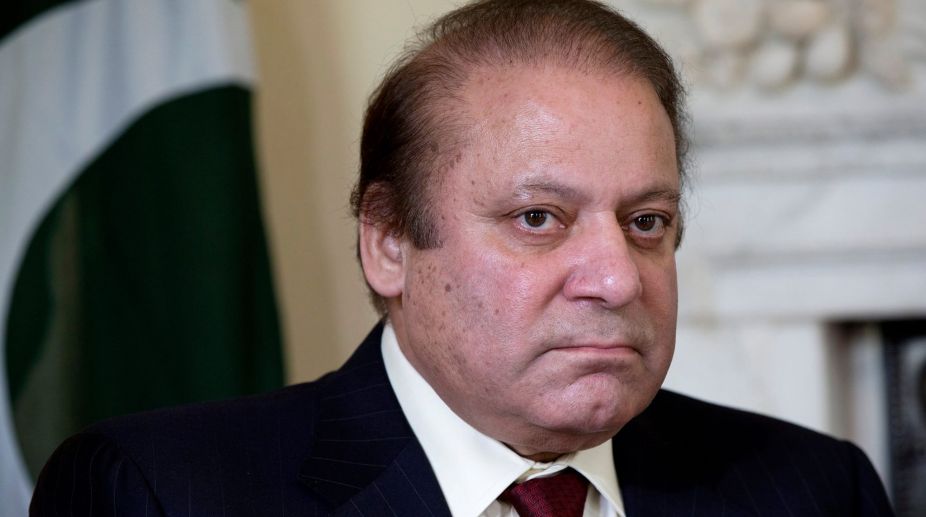KMC works on to ensure ownership rights of 3 disputed properties
The Kolkata Municipal Corporation is facing a quandary over three properties named in its list of assets, but owned by private parties.

Nawaz Sharif (PHOTO: Facebook)
With a military court in Pakistan awarding death sentence to former Indian Navy officer Kulbhushan Jhadav in an alleged espionage case, the country’s powerful Army appears to have yet again brought to nought all attempts aimed at reconciliation between India and Pakistan.
New Delhi believes that the Nawaz Sharif-led civilian regime was not even kept in the loop as Chief of the Pakistan Army Gen Qamar Javed Bajwa confirmed the sentence awarded to the Indian national by a military ‘kangaroo’ court.
This is not the first time the army leadership in the country has scuttled peace overtures which were very much visible following the assembly elections in India in March. Jadhav’s conviction comes at a time when India had given clear signs of softening its stand by sending three senior MPs to attend a conference of Parliamentarians and a delegation of the Permanent Indus Commission (PIC) to attend the talks on the Indus Water Treaty (IWT) to Pakistan.
Advertisement
Speculation was also rife in diplomatic circles that Prime Minister Narendra Modi and his Pakistani counterpart Sharif, who are expected to attend the Shanghai Cooperation Organisation (SCO) Summit in Kazakhstan in June, might meet on the margins of the summit.
Coast Guard personnel of the two countries were scheduled to meet in New Delhi just about 10 days from now. One can safely say that this event stands cancelled in the wake of extreme provocation by Pakistan. India has already put on hold the release of about a dozen Pakistani fishermen after yesterday’s development.
It is common knowledge that it is not the civilian leadership but the Pakistan Army which runs the country’s foreign policy, especially with regard to India and the United States.
The verdict of the military court runs contrary to what Pakistan’s Foreign Policy Advisor Sartaj Aziz had told the Senate in December last year. His statement that there was not sufficient evidence to prove that Jadhav was linked to RAW had angered the military establishment to an extent that the next day the foreign ministry was ordered to issue a clarification.
India is likely to go all out in the coming days to ‘name’ and ‘shame’ Pakistan. External Affairs Minister Sushma Swaraj has already made it clear to Pakistan to be prepared for the consequences, should it carry out the sentence awarded to the Indian national. India is expected to make Jadhav’s conviction by a ‘kangaroo’ military court in Pakistan a human rights issue. The fact that Jadhav was not given a free trial and all requests for consular access to him were denied to the Indian authorities would also be highlighted.
The military courts in Pakistan have unbridled rights and unmatched jurisdiction. However, these military courts do not have trained judges or judges with mandatory legal training. Human rights activists in Pakistan have also questioned the very existence of military courts, contending that the accused undergo questionable interrogation and are tortured to make ‘favourable’ confessions.
According to the Inter-Services Public Relations (ISPR), the media wing of the Pakistan armed forces, nearly 90 per cent of the accused confessed to the charges framed against them in 2016. Jadhav’s confession was one of them.
Advertisement